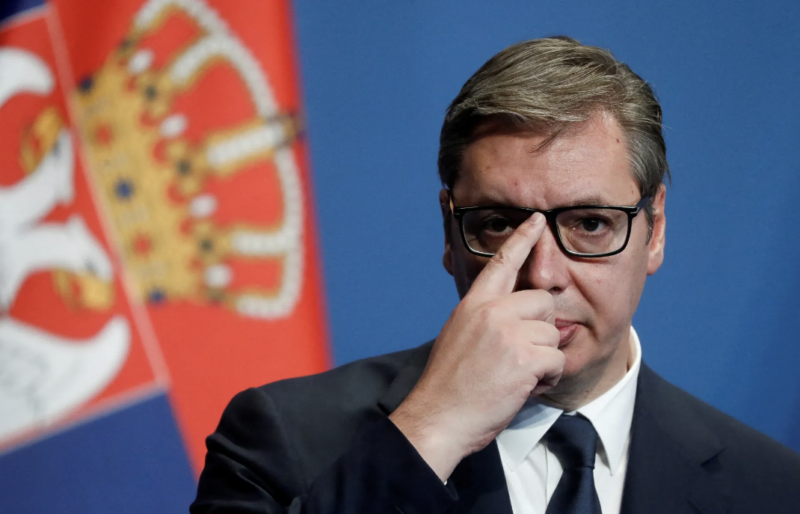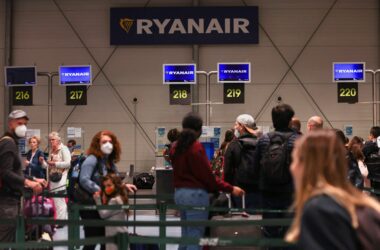Even after standing shoulder to shoulder with Vladimir Putin at Moscow’s Victory Day celebrations, Serbian President Aleksandar Vučić is still getting the red-carpet treatment from Brussels. On May 13, European Council President António Costa made it clear he wasn’t about to scold Vučić—instead, he leaned into a softer, more diplomatic approach.
“The EU is firmly committed to Serbia’s path into the union,” Costa remarked during their meeting, painting a rosy picture of Serbia as a future member—so long as it’s democratic, stable, and looking to the West. And yes, even after Vučić’s symbolic alignment with Moscow, the message from Brussels remained surprisingly forgiving.
Costa, careful not to ruffle too many feathers, waited until the tail end of his speech to touch on the elephant in the room: Russia’s war in Ukraine. “Of course,” he said, almost as an afterthought, “we can’t ignore that a key part of EU foreign policy is to condemn Russia’s brutal invasion.”
Still, Costa downplayed the optics of his visit, admitting he was warned by many not to go to Serbia at all. But he shrugged it off. “We can’t rewrite history,” he said, acknowledging Serbia’s WWII liberation by Soviet troops. “But we also can’t celebrate that liberation while turning a blind eye to a new war of aggression today.”
Vučić, unbothered by the criticism, struck a more pragmatic tone. Taking to Instagram, he praised Costa for showing “goodwill” and insisted that Serbia still sees the EU as its main partner. “We want to deepen trade, expand exports, and stay on the European track,” he claimed, while simultaneously defending his visit to Russia as part of Serbia’s balanced foreign policy.
He also pushed for progress on EU accession talks, hoping to open a new chapter—Cluster 3—in negotiations, suggesting Serbia’s future lies firmly in Europe, at least officially. But his message came with a caveat: “We won’t turn our backs on traditional friends,” Vučić said, referring to Moscow, adding that a new gas deal with Russia is crucial for Serbia’s energy security.
While Vučić may talk European when in Brussels’ earshot, his actions tell a more nuanced story. His Moscow visit raised plenty of eyebrows across the EU. Just last month, EU foreign affairs chief Kaja Kallas warned candidate countries to stay far away from Russia’s May 9 festivities. “Participation won’t be taken lightly,” she warned.
European Commissioner for Enlargement Marta Kos also flagged the issue, saying the trip could make it harder to justify Serbia’s continued EU bid. Social Democrats in the European Parliament went even further, demanding consequences for what they saw as blatant “appeasement” of Putin’s regime.
But despite the criticism from Brussels’ elite, Vučić’s balancing act seems to be working—for now. He’s managed to keep one foot in the EU camp and the other firmly planted in the East, playing both sides while Brussels hesitates to draw a line in the sand.
At the end of the day, it looks like Vučić is betting he can charm the EU while cozying up to Moscow—and no one in Brussels seems quite ready to call his bluff.




